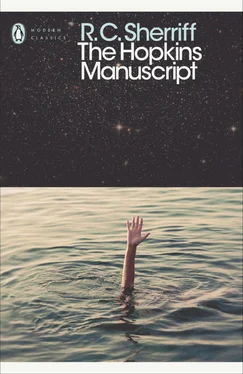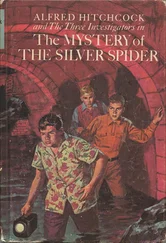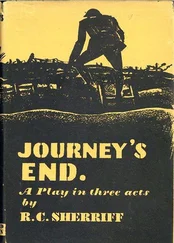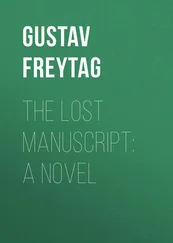Роберт Шеррифф - The Hopkins Manuscript
Здесь есть возможность читать онлайн «Роберт Шеррифф - The Hopkins Manuscript» весь текст электронной книги совершенно бесплатно (целиком полную версию без сокращений). В некоторых случаях можно слушать аудио, скачать через торрент в формате fb2 и присутствует краткое содержание. Год выпуска: 2018, ISBN: 2018, Издательство: Penguin Books, Жанр: sf_postapocalyptic, humor_satire, на английском языке. Описание произведения, (предисловие) а так же отзывы посетителей доступны на портале библиотеки ЛибКат.
- Название:The Hopkins Manuscript
- Автор:
- Издательство:Penguin Books
- Жанр:
- Год:2018
- ISBN:978-0-241-34908-3
- Рейтинг книги:4 / 5. Голосов: 1
-
Избранное:Добавить в избранное
- Отзывы:
-
Ваша оценка:
- 80
- 1
- 2
- 3
- 4
- 5
The Hopkins Manuscript: краткое содержание, описание и аннотация
Предлагаем к чтению аннотацию, описание, краткое содержание или предисловие (зависит от того, что написал сам автор книги «The Hopkins Manuscript»). Если вы не нашли необходимую информацию о книге — напишите в комментариях, мы постараемся отыскать её.
The Hopkins Manuscript — читать онлайн бесплатно полную книгу (весь текст) целиком
Ниже представлен текст книги, разбитый по страницам. Система сохранения места последней прочитанной страницы, позволяет с удобством читать онлайн бесплатно книгу «The Hopkins Manuscript», без необходимости каждый раз заново искать на чём Вы остановились. Поставьте закладку, и сможете в любой момент перейти на страницу, на которой закончили чтение.
Интервал:
Закладка:
I pass to another evening, three months later. A grey, April evening of scudding cloud. It had rained all afternoon, but at sunset the sky cleared for a while, and we ate our dinner, for the first time that year, in the last rays of the sun.
Robin and I had decided to walk down in the twilight to the rusty old King Lear to see if we could rig up one of the saloons as a ping-pong room for our friends. The Shipping Company had made no effort to take the liner away, and I saw no reason why we should not make use of it. As the liner lay upon its side it would, of course, be necessary to use the saloon wall as the floor, and the floor and ceilings as the walls, but Robin was very keen on fixing up some novel kind of amusement for our friends when they came to dine with us and I agreed to go with him to see whether we could cover up the windows to avoid players falling through them as they ran about.
I had put on my coat. I was filling my pipe, preparing to light it.
‘Let’s just hear the news before we go,’ said Robin.
He switched on the radio – I remember it so clearly – I was searching the mantelpiece for a match to light my pipe, but my pipe was never lit that night. I found it when I went to bed, forgotten in my pocket, for as my fingers ran along the mantelpiece the voice came through: the voice that spoke the end of all our strivings – that spoke the prelude to the last chapter of our days.
‘This is the National Station of Britain. At five o’clock this evening the Government issued the following Bulletin:-
After many weeks of earnest discussion, the International Council at The Hague has failed to reach agreement upon the division of the territories of the moon. This morning the Council, which has, in the past two years, performed such admirable work in International Reconstruction, was broken up, and its delegates returned to their respective countries.
‘In ten minutes’ time the Prime Minister, who returned from The Hague this evening, will explain the position of the British Government. In view of the vital importance of his message you are requested to warn all those within reach of you to listen.’
There was dead silence in the room – broken long after the announcer had finished by a whisper from Pat.
‘What does it mean?’
‘I don’t know,’ I replied.
I was bewildered by the news: numbed by a fear out of all proportion to the meagre and casually delivered announcement, but from my bewilderment rose one dreadful conviction: ‘It has come! – it has come… I knew that it would come!’
My memory rushed back to the party at Dr Cranley’s house three months ago – to Major Jagger. I saw it all once more as vividly as if it had happened an hour ago – and yet I had striven with all my might to drown it in reassuring thoughts of future happiness. I knew now what, despite myself, I had striven to ridicule. I knew that every word that Major Jagger had said that night was true… desperately true…
I should have known it, long ere this, had I tried to understand. I should have read through the guarded newspaper articles: I should have seen through the veiled references in broadcast speeches: the hurried comings and goings of Ministers to The Hague – the urgent meetings of the Cabinet, always ending with ‘negotiations are proceeding well’. ‘There is no question of serious disagreement’ – ‘the matters involved are naturally very complicated and need further discussion’. Always the note at the end: ‘All is well – all is well!’
Deep within me I had known the truth: in the depths of the night I had known it.
‘This is the National Station. The Prime Minister.’
I had not heard John Rawlings speak before. He had risen from a solicitor’s office in a small country town to a minor post in the Government before the cataclysm.
The new Parliament had voted him Premier as a result of some good work he had done in organising the City of Oxford as the provisional seat of government. The choice had been justified, but while John Rawlings proved himself an excellent administrator of home affairs it was whispered at the time, and loudly proclaimed afterwards by his enemies, that he was a weak negotiator and no match for the greedy opportunists who seized power abroad directly the wealth of the moon became known. And now his voice came to us, thin and desperately tired.
‘It is vitally important that every citizen shall understand the crisis in which the British Empire stands today.
‘The moon’s position in the Atlantic Ocean has blocked our sea routes and isolated the British Isles from its Colonies and Dominions. Unless we have free passage across the moon to the Atlantic and Mediterranean, Britain is doomed. Without that corridor to the Ocean we shall be dependent for all time upon bringing our vital supplies through the lands of foreigners who can cut them off and starve us at their will.
‘Before the moon’s wealth was known to Europe, no nation raised objection to our corridor: all recognised it as our lifeline, and agreed to make it British territory. But new leaders have risen abroad – irresponsible adventurers who crave for the lion’s share of the moon in order to enhance their prestige. They deny our right to a corridor: they reject our guarantee to preserve its neutrality and our promise to give them freedom to cross it, on the grounds that we might fortify it and one day claim the whole moon as our own.
‘Britain stands today at its greatest crisis: either we must submit to the greed of others, forgo our right to the corridor and take the road to servitude, or we must stand firm and assert ourselves, if necessary, by force of arms. No citizen of this proud, free country will hesitate in his choice: any sacrifice is better than servitude… I and my Ministers are working day and night in our search for an honourable and peaceful solution… we do so in the knowledge that every man and woman of Britain will support us… will give their lives, if need be, in the sacred cause of freedom…’
CHAPTER TWENTY-SEVEN
I have written nothing in these past three days. I have been ill with some kind of fever that must have come to me from the stagnant mists that rise from the undrained marshes of St James’s Park. I have lain upon my bed in a kind of dream, creeping out now and then for a little water from my store.
The fever has left me, but I find myself too weak to go any longer upon my journeys in search of food. Fortunately, when I was stronger, I set aside a little of the food that I discovered on my daily excursions and laid up a small reserve of water in the bath. The food is hanging above me, suspended in a sack from the electric light pendant – the only means of protecting it from the rats. There is sufficient to last me for a week, and I shall not leave this room again. The last pages of my story will be a desperate race – a desperate struggle against a weakness that consumes me day by day. I am writing with my thermos flask beside me. As each page is finished I roll it and place it in the flask. Should I feel the end suddenly upon me, my last act will be to seal my flask in order that posterity may receive at least the pages that I completed up to the moment of my collapse.
I hope and pray that my thermos flask will preserve them: that the hiding place will be discovered. It would be sad if all that I have done were proved to be in vain…
But I have no time for moralising: I must hurry with my story: every page shall be a victory over the panic of encroaching weakness – over the panic of the dreadful silence that enshrouds me more deeply every hour.
How shall I begin the story of these final, nightmare years?
Until the Prime Minister spoke on that April evening four years ago, we knew nothing of the storm that had been gathering throughout the winter. Desperate that nothing should disturb their laborious plans for rebuilding our cities, the Governments had deliberately kept us in the dark, no doubt appealing to the newspapers to support them. They knew how slight and precarious were the foundations of our new prosperity and they hoped that the international problems could be settled without disturbing us.
Читать дальшеИнтервал:
Закладка:
Похожие книги на «The Hopkins Manuscript»
Представляем Вашему вниманию похожие книги на «The Hopkins Manuscript» списком для выбора. Мы отобрали схожую по названию и смыслу литературу в надежде предоставить читателям больше вариантов отыскать новые, интересные, ещё непрочитанные произведения.
Обсуждение, отзывы о книге «The Hopkins Manuscript» и просто собственные мнения читателей. Оставьте ваши комментарии, напишите, что Вы думаете о произведении, его смысле или главных героях. Укажите что конкретно понравилось, а что нет, и почему Вы так считаете.












